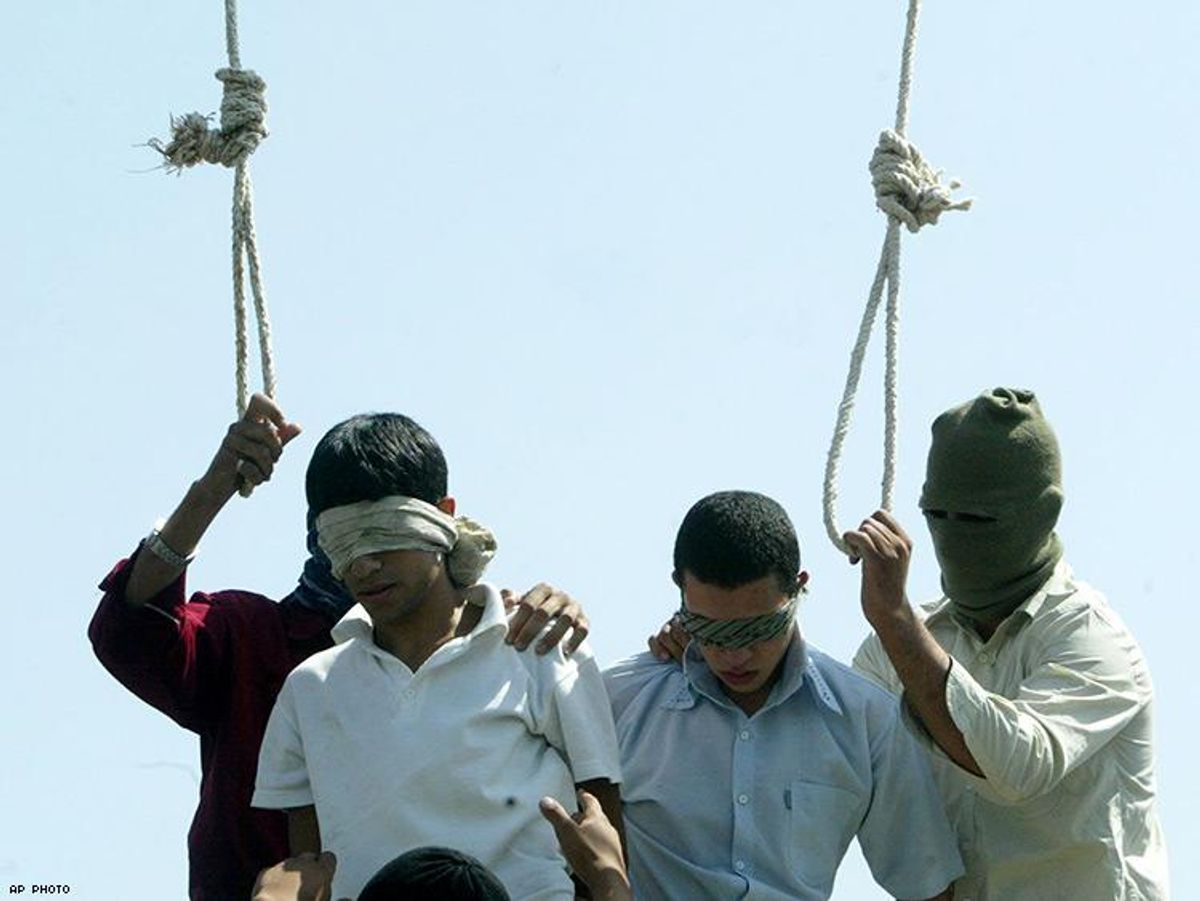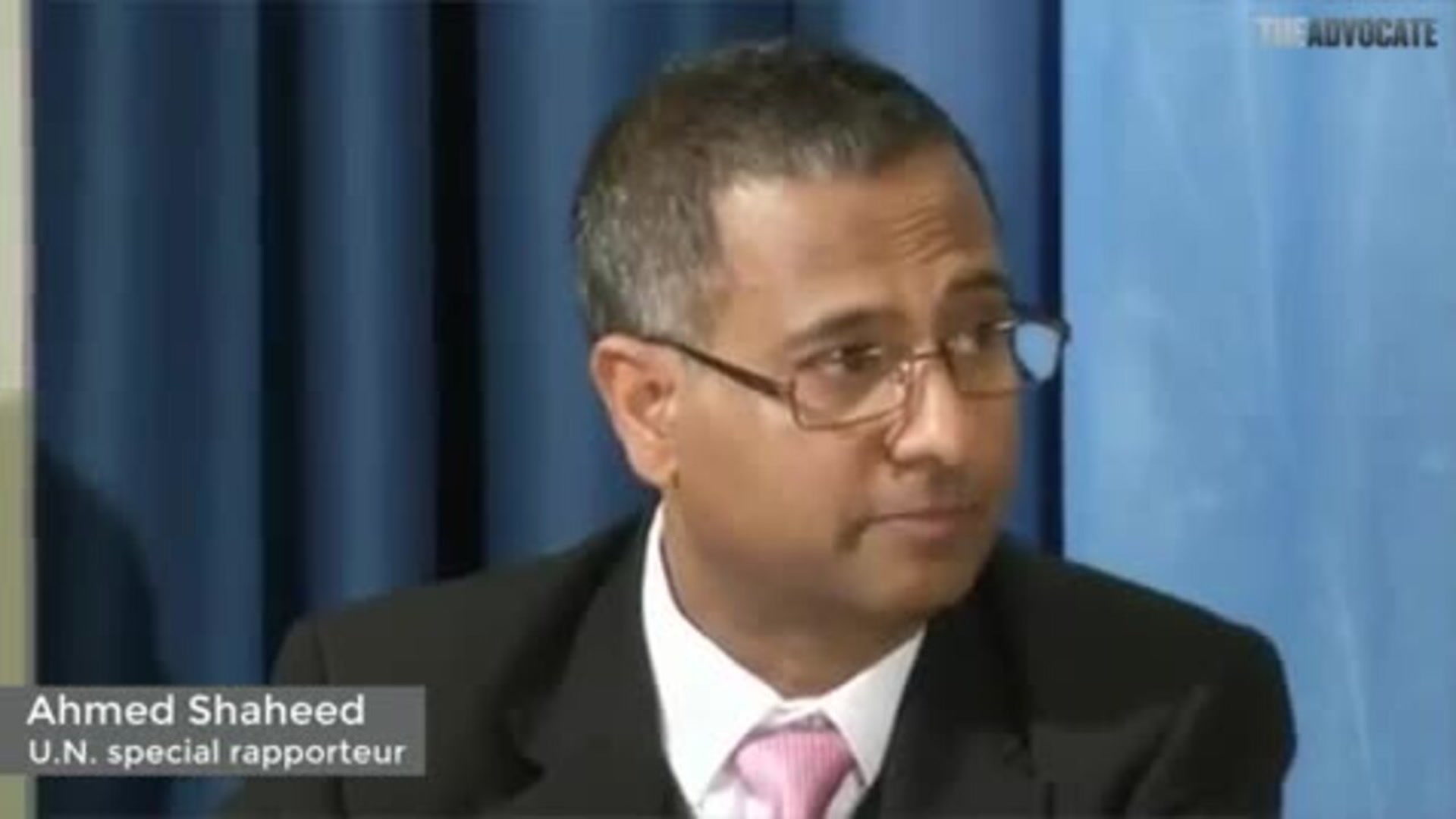Iran recently executed a gay teen, reminding the world that it still regularly kills minors no matter what international law says.
Amnesty International this week decried the hanging of gay Iranian teenager, Hassan Afshar, as proof of the country's "sickening enthusiasm for putting juveniles to death" and as a "contravention of international law" that "knows no bounds." Putting to death any juvenile violates United Nations covenants. Still, Iran hasn't shied from the most extreme penalty when prosecuting even the youngest men for gay sex and other crimes under Islamic law.
An Amnesty International report in January found that four people were killed last year despite being juveniles at the time of their crime. And between 2005 and 2015, 73 were executed.
In this latest case, Afshar was charged at age 17 with raping another boy. His family said it was consensual, which is sometimes a moot point. If the other boy hadn't called it "rape" instead of consensual sex, he too could have faced the death penalty.
Amnesty International reports that Afshar was hanged in Arak's Prison in Markazi Province on July 18. Another teen, Alireza Tajiki, is next in line for execution, accused of raping and murdering a friend. Amnesty International notes that Iran's Supreme Court had said there's no evidence Tajiki committed the crime, and it says a confession is invalid because it was provoked by torture.
International outrage over Afshar's death has so far managed to put the next killing on hold.
"While we welcome the stay of execution for Alireza Tajiki, his life has been saved for the moment because of public pressure and not because the Iranian authorities are seriously considering stopping the horrendous practice of executing juveniles," said Magdalena Mughrabi, deputy Middle East program director at Amnesty International. "This is illustrated by the fact that just two weeks ago Hassan Afshar was hanged in anonymity -- publicity should not make the difference between life and death."
A rare photo of one of those executions (seen above) outraged the world in 2005, when a blindfolded Mahmoud Asgari, 16, and Ayaz Marhoni, 18, were publicly hanged in Mashhad, Iran, on charges of raping boys. The photos might have stopped, but the killings haven't.
A United Nations report in 2014 reported that 160 young men are on death row in Iran having been convicted of a myriad of crimes. Another United Nations investigation this year found that the death penalty reached a 20-year high in 2015, with 966 people killed.
Under Islamic law, these offenses -- called hodud -- can include "insulting the Prophet of Islam," extra-marital sex, and consensual gay sex. Under hodud, death is one of four possible punishments, which could also include crucifixion, banishment, and amputating the right arm and left leg.
There are 12 places where you can be killed by your country for gay sex. Many more countries consider it a crime but don't punish with death. The crime is actually spreading to more countries now, not fewer. The creeping turn toward religiosity is being felt now in Indonesia, for example, which allowed Aceh province to implement Sharia Law last year, requiring 100 lashes with a cane for gay sex.
Now the Associated Press reports that Indonesia's top court is considering whether gay sex ought to be a criminal offense nationwide. If the nine judges go that route, it would mean a prison sentence of up to 15 years for gay sex.




















































































